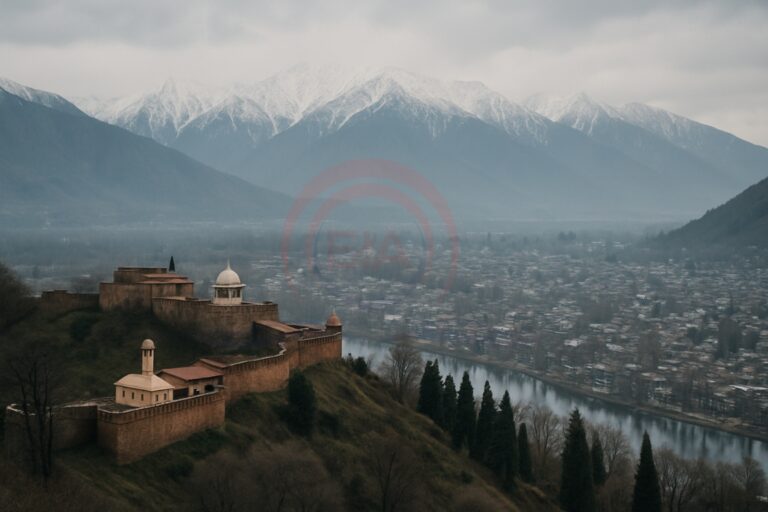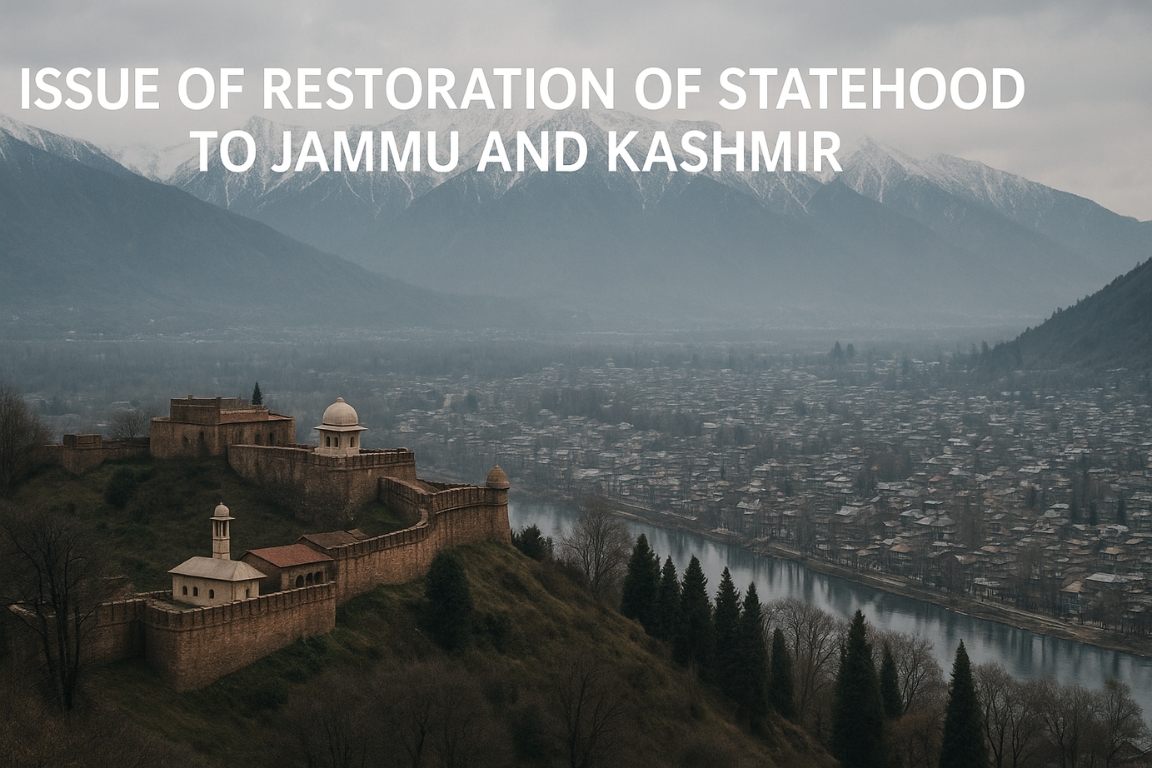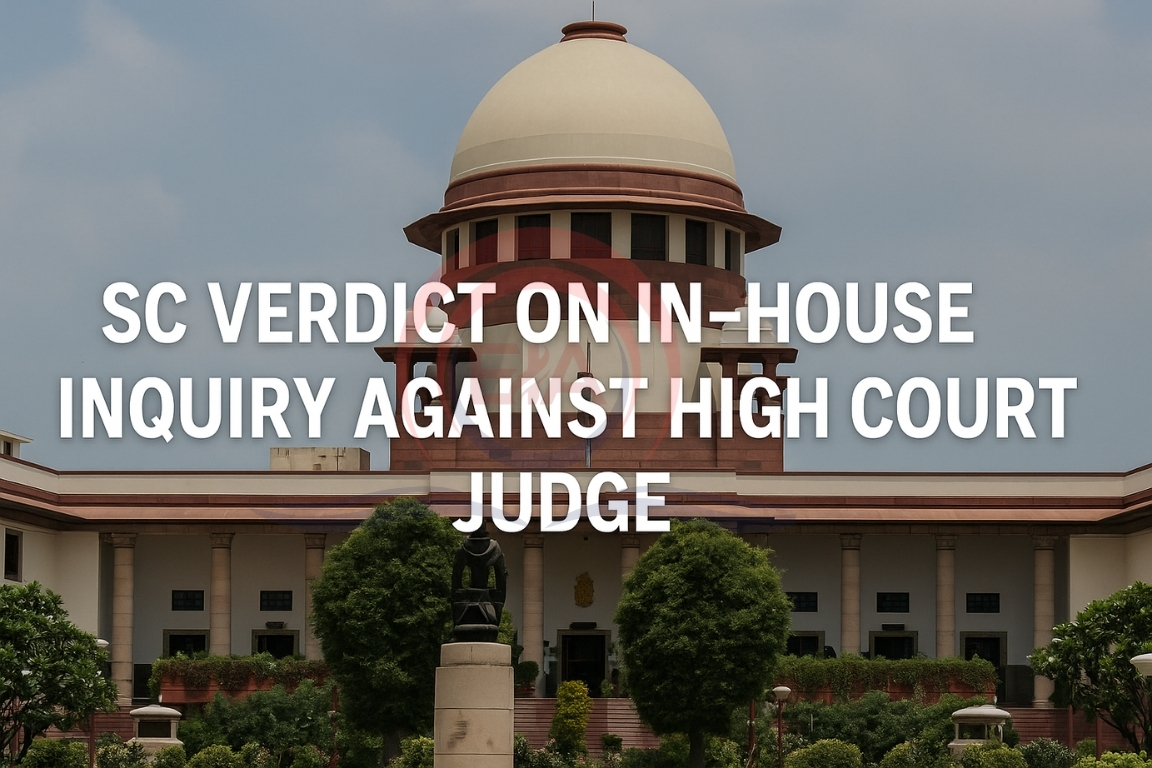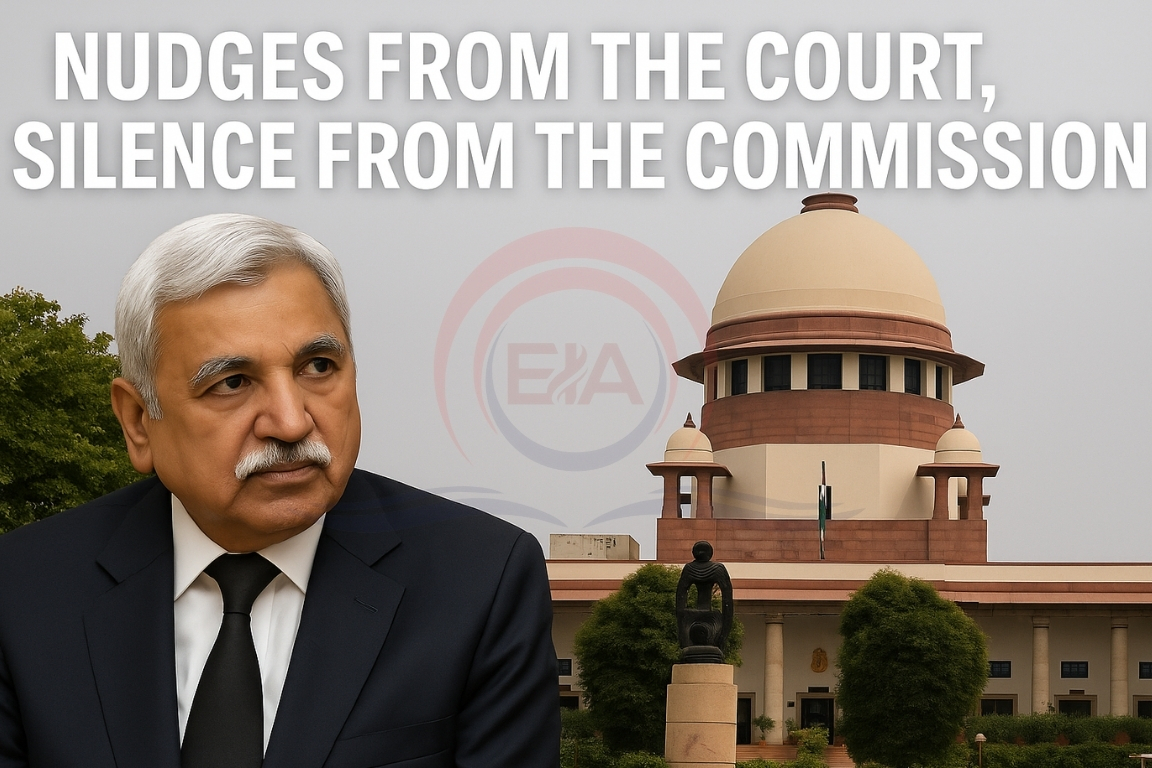Why in News?
The Supreme Court has recently asked the Union Government to submit a detailed plan regarding the restoration of statehood to Jammu and Kashmir, following its earlier directions in the 2023 judgment.
Introduction
- The reorganisation of Jammu and Kashmir in 2019 marked a turning point in India’s federal history.
- The abrogation of Article 370 and the Jammu and Kashmir Reorganisation Act, 2019 divided the state into two Union Territories — Jammu & Kashmir (with a legislature) and Ladakh (without a legislature).
- While the Supreme Court upheld the move in 2023, it also emphasised that statehood must eventually be restored, raising crucial debates around federalism, democracy, and constitutional morality.

Constitutional Framework for State Formation
- Article 3 of the Constitution empowers Parliament to create, alter, or rename states.
- Admission – Entry of a political unit into India, e.g., Jammu and Kashmir’s accession in 1947.
- Establishment – Addition of new territories, e.g., Goa and Sikkim.
- Formation – Reorganisation of existing states, as done in 1956.
- Importantly, Article 3 does not authorise the permanent conversion of a state into a Union Territory. Prolonged UT status for Jammu & Kashmir undermines federal principles.
Implications of Non-Restoration
- Democratic Deficit – UTs vest overriding authority in the Lieutenant Governor, reducing the powers of elected representatives.
- Dilution of Federalism – Risks setting a precedent where states may be downgraded at the Centre’s discretion.
- Alienation of Citizens – Prolonged central control may deepen mistrust among local communities.
- Erosion of Rights – Limits the citizens’ right to self-rule and participation in decision-making.
- Precedent for Over-Centralisation – Could weaken cooperative federalism and disturb the federal balance envisaged in the Constitution.
Why Restoration of Statehood is Essential
- Federalism as a Basic Structure – As upheld in Kesavananda Bharati (1973), statehood is crucial to preserve the basic framework of the Constitution.
- Cooperative Federalism – Ensures fair representation of states in the Rajya Sabha, strengthening national decision-making.
- Empowerment of Elected Government – Restores accountability and trust between people and administration.
- Compliance with Judicial Directions – Aligns with the Supreme Court’s order for timely restoration.
- National Unity with Balance – Security concerns may justify temporary UT status, but prolonged central rule erodes trust and weakens integration.
Conclusion:
Restoring statehood to Jammu and Kashmir is not merely a political choice but a constitutional obligation. It is essential to protect federalism, democracy, and the spirit of self-governance. A timely return to statehood will strengthen both national unity and constitutional morality.





